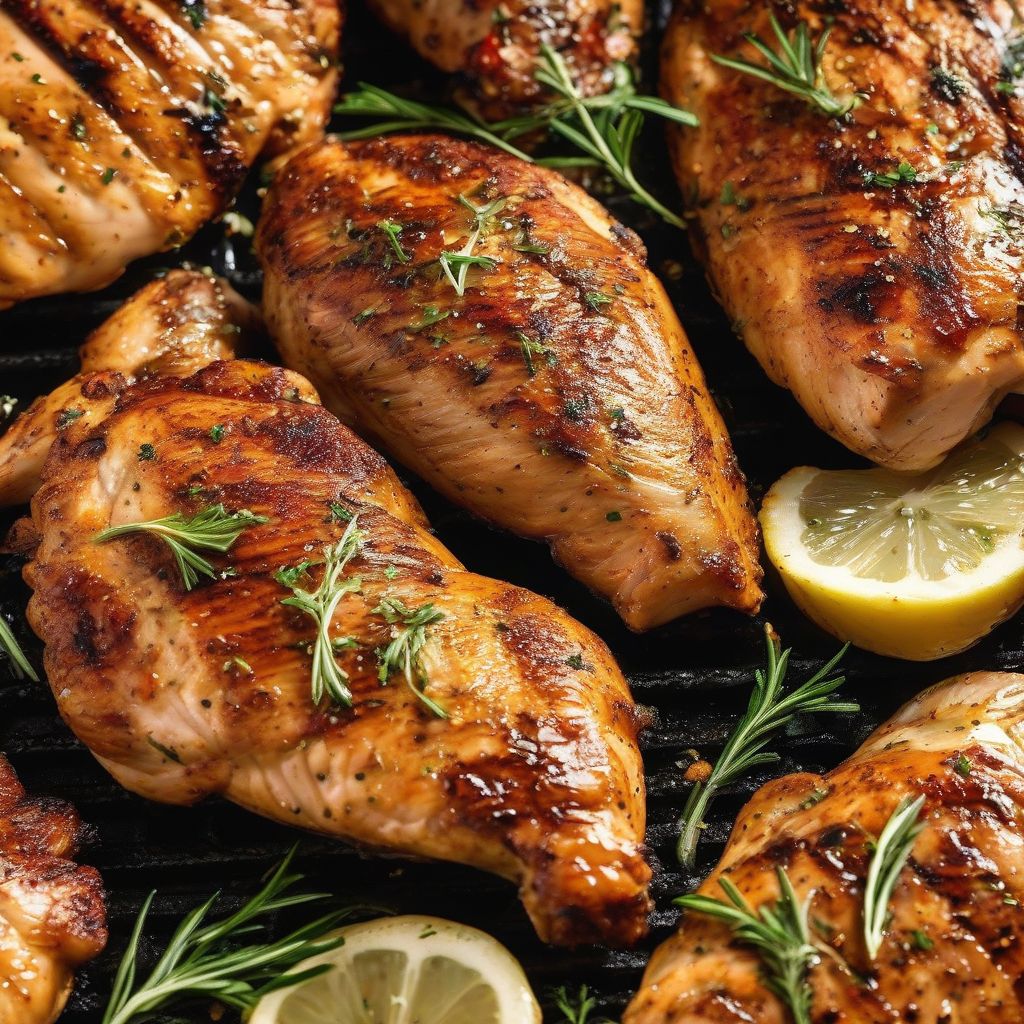Imagine biting into a juicy, flavorful chicken breast bursting with aroma and taste. Or picture a perfectly grilled steak, tender and infused with a delicious smoky depth. What’s the secret to such culinary delights? It often lies in the transformative power of marinades and the artful use of spices. As a nutritionist and meal prep coach, I’m here to guide you through the incredible world of flavor enhancement and show you how marinating and seasoning can elevate your dishes from ordinary to extraordinary.
Why Marinate? The Science of Flavor and Texture
Marination is more than just soaking food in liquid; it’s a scientific process that tenderizes, infuses flavor, and enhances the overall dining experience. Here’s how it works:
1. Tenderizing Tough Cuts
Marinades, particularly those containing acidic ingredients like lemon juice, vinegar, or yogurt, work wonders on tougher cuts of meat. The acids break down muscle fibers, resulting in a more tender and palatable final product.
2. Deeply Infused Flavor
Marinating allows your chosen flavors to penetrate deep into the food, resulting in a more pronounced and delicious taste. Whether you prefer savory, spicy, tangy, or sweet, a well-crafted marinade infuses every bite with your desired profile.
3. Moisture Retention
Marinades help your food retain moisture during cooking, preventing dryness and ensuring a succulent and satisfying meal. This is especially beneficial for lean meats that tend to dry out easily.
 Flavorful Grilled Chicken Breasts
Flavorful Grilled Chicken Breasts
The Art of Seasoning: Unleashing a World of Taste
While marinades infuse flavor over time, seasonings add a burst of taste directly to the surface of your food. Here’s why spices are essential to a well-seasoned dish:
1. Aromatic Complexity
Spices have an incredible ability to add depth and complexity to your dishes. From the warm earthiness of cumin to the bright citrus notes of coriander, the right spice combination can transform a simple meal into a sensory delight.
2. Cultural Exploration
Spices are a window into different cultures and cuisines. Experimenting with spice blends from around the world can introduce you to new flavor profiles and culinary traditions.
3. Health Benefits
Many spices boast impressive health benefits. Turmeric, for instance, is known for its anti-inflammatory properties, while ginger aids digestion. Incorporating a variety of spices into your diet can contribute to your overall well-being.
Frequently Asked Questions about Marinating and Seasoning
Here are answers to some common questions about using marinades and spices:
Q: How long should I marinate my food?
A: Marinating times vary depending on the type and cut of food. As a general guideline:
- Fish and seafood: 30 minutes to 1 hour
- Chicken: 2 to 6 hours
- Beef, pork, and lamb: 4 hours to overnight (or longer for tougher cuts)
Q: Can I reuse marinade after it’s had raw meat in it?
A: For safety reasons, it’s best to discard marinade after it’s been in contact with raw meat. If you want to use some of the marinade as a sauce, reserve a portion separately before adding the raw ingredients.
Q: What are some essential spices to have in my pantry?
A: Building a well-stocked spice rack opens up a world of flavor possibilities. Some must-haves include:
- Basics: Salt, black pepper, garlic powder, onion powder
- Warm spices: Cumin, coriander, paprika, cinnamon
- Herbs: Oregano, basil, thyme, rosemary
Conclusion: Elevate Your Meals with the Magic of Marinades and Spices
From tenderizing proteins to infusing incredible flavors, marinades and spices are essential tools for any home cook. Don’t be afraid to experiment with different flavor combinations, try new spices, and explore the diverse world of culinary traditions.
What are your favorite marinades and spice blends? Share your culinary creations and tips in the comments below!
[amazon bestseller=”spice-racks”]
